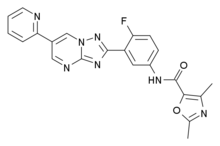Scientists have identified a compound that can kill the parasites responsible for three neglected diseases: Chagas disease, leishmaniasis and sleeping sickness. These diseases affect millions of people in Latin America, Asia and Africa, but there are few effective treatments available.

A new study, published today in Nature, suggests that a single class of drugs could be used to treat all three. Wellcome-funded researchers at the Genomics Institute of the Novartis Research Foundation (GNF) have identified a chemical that can cure all of these diseases in mice. It also does not harm human cells in laboratory tests, providing a strong starting point for drug development.
Chagas, leishmaniasis and sleeping sickness have different symptoms, but are all caused by parasites called 'kinetoplastids' - a type of single-celled organism. The parasites share similar biology and genetics, which led scientists to think it might be possible to find a single chemical that could destroy all three.
The team at GNF tested over 3 million different chemicals and identified a compound, GNF6702, which was effective against the parasites but did not damage human cells. They refined this starting compound to make it more potent before testing in it mice.
Senior study author Frantisek Supek from GNF said: "We found that these parasites harbour a common weakness. We hope to exploit this weakness to discover and develop a single class of drugs for all three diseases."
Dr Stephen Caddick, Director of Innovation at Wellcome, said: "These three diseases lead to more than 50,000 deaths annually, yet they receive relatively little funding for research and drug development. We hope that our early stage support for this research will provide a basis for the development of new treatments that could reduce suffering for millions of people in the poorest regions of the world."
Existing treatments for the three diseases are expensive, often have side effects and are not very effective. The fact that GNF6702 does not seem to have any adverse effects in mice suggests that it might have fewer side-effects than existing drugs, although this will need to be explored in human studies. GNF6702 is now being tested for toxicity before it can be moved in to clinical trials.
Ref : https://en.wikipedia.org/wiki/GNF6702
